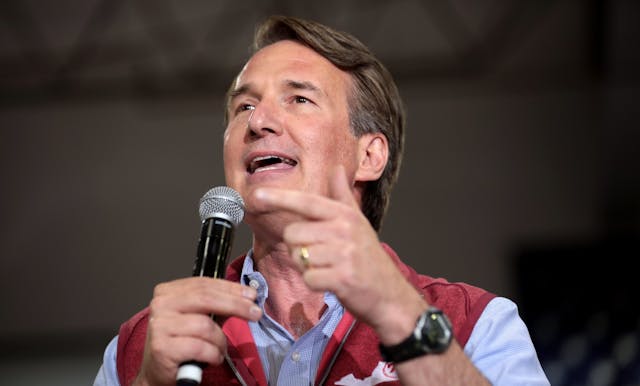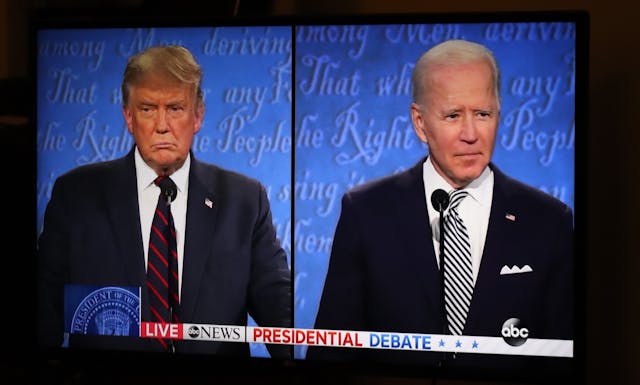Third Circuit Avoids Breaking Two-Party Monopoly

Balsam v. Guadagno (Secretary of the State of New Jersey). The court affirmed a lower district court’s decision to dismiss a constitutional challenge to New Jersey’s closed partisan primary, holding that New Jersey may limit those who have a fundamental right to cast a vote in the primary election to party members.
Appellants argued that New Jersey’s closed primary elections, in a state where 48 percent of voters refuse to join either major party, give the Republican and Democratic private parties a monopoly over the election process at the expense of the public taxpayer. Appellants have further argued that such a monopoly reduces the competitive nature the electoral process -- and the political parties, for that matter -- should face.
The decision, handed down just a few weeks after oral argument, is perhaps testament to how high the hurdles have been raised for the independent movement against a political institution that has been controlled by political parties for so long.
As an institution that has been historically reluctant to enter ‘the political thicket,’ the court may have hesitated to make a decision that would not only affect the fundamental nature of New Jersey’s election system, but would have implications on the constitutionality of closed primary systems conducted across the country.
Read the original complaint and all motions filed in this case here.
The Third Court of Appeals mostly echoed the decision made by district court judge, Stanley R. Chesler, in which he ruled that any burden on an unaffiliated voter’s fundamental right to vote in a closed primary is minimal. He held that, if an unaffiliated voter wants to participate in the primary election, he or she can “simply join a party.”
“While ‘a citizen has a constitutionally protected right to participate in elections on an equal basis with other citizens in the jurisdiction,’ Dunn v. Blumstein, 405 U.S. 330, 336 (1972), no court has ever held that that right guarantees participation in primary elections,” the Third Circuit Court of Appeals held.
https://www.youtube.com/watch?&v=0L4Du4agfEM&t=24m50s
Listen to an attorney for the Independent Voter Project explain in oral argument how Gray v. Sanders in 1963 established the legal precedent of “one person, one vote,” in a case concerning primary elections and the unconstitutionality of malapportioned districts.
The unanimous decision was delivered by a three-judge panel, which included Judges D. Brooks Smith, Kent A. Jordan, and Franklin S. Van Antwerpen. The decision was notably short and reached its conclusion by relying on the summarily affirmed case, Nader v. Schaffer, decided in 1976. The decision, however, did not mention Democratic Party v. Jones (2000), the more recent Supreme Court opinion heavily relied on by both parties.
Further, the court made no mention of appellants’ use of other cases where the court struck down a state’s primary elections process as unconstitutional to protect the fundamental right to vote.
In the 1940s, for example, the Democratic Party and the State of Texas argued in federal court (Smith v. Allwright) that African-Americans could not vote in the party’s primary elections because they were private affairs. However, the Supreme Court ruled that since the state had made the primary an important part of the public election process, the right of African-Americans to participate could not be abridged.
New Jersey’s primary elections are an integral stage of the public election process, and neither the State of New Jersey nor the court denied this notion. However, the three-judge panel said that the fundamental right to vote applies only after the state has determined who is a "qualified voter."
And in New Jersey, a voter must join one of two private political parties in order to be considered a “qualified voter” at the primary stage of the election.
In oral argument, the New Jersey attorney argued that "democracy isn't easy." She said the two parties built up equity "through the decades and centuries," and if independent voters and candidates want to be heard, they "have to do the hard work; they have to do the leg work."
The brevity of the court’s decision may indicate that it is not ready to resolve the conflict between the state’s right to conduct its electoral process and the individual’s right to vote. Such a decision would go to a core question about government itself: does it belong to the legislators who govern, or the people for whom the legislators govern?
[A similar issue will be decided in a case recently argued before the Supreme Court concerning the constitutionality of Arizona’s independent redistricting commission. READ HERE]
Read the court's decision:
Photo Credit: cowardlion / shutterstock.com



